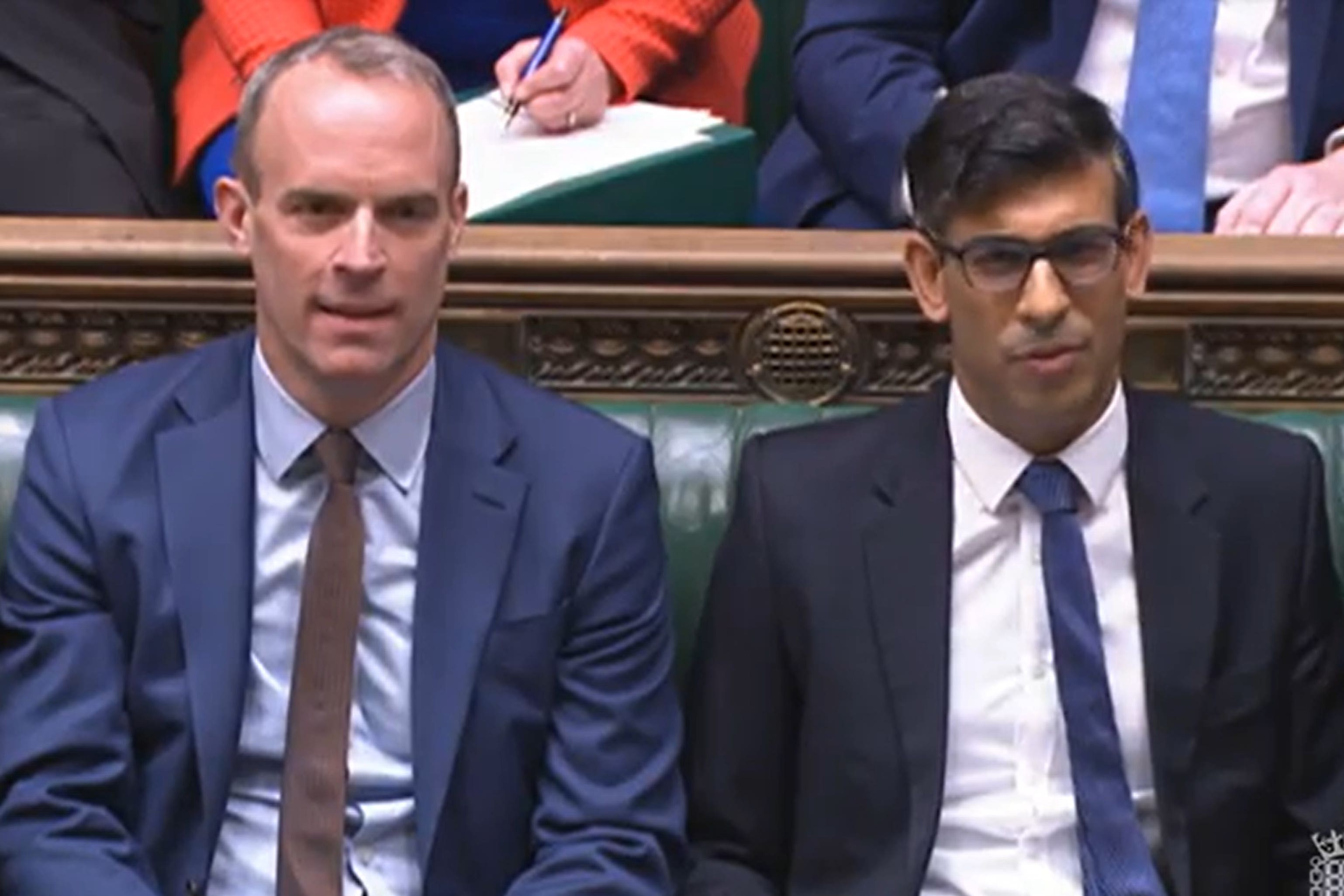Dominic Raab’s resignation gets Rishi Sunak off the hook
It is clear from Raab’s resignation letter that Sunak has reached the right decision – and forced Raab to make the right decision too, writes John Rentoul


It was a marginal decision on the facts, and the prime minister erred on the side of public opinion in requiring Dominic Raab’s resignation. Public opinion will not be completely satisfied, because Raab was allowed to resign rather than being sacked, but that is a detail.
Rishi Sunak sent a message to other ministers: he cannot be pushed around, but he is prepared to allow them due process and the dignity of resigning. The deputy prime minister obviously didn’t want to go, and Sunak prevailed upon him directly or indirectly to do what was required.
Raab confirmed that he doesn’t have the temperament for politics in his resignation letter, complaining sulkily that the prime minister had set the bar too low for the definition of bullying. In other words, Sunak had decided that if there were any doubt about whether Raab’s conduct constituted bullying, he would refuse to give the alleged bully the benefit of the doubt.
Given that Sunak had taken office promising that his government would be characterised by “integrity” he could do nothing else if he wanted us to believe he meant it. That word “integrity” was meant as a rebuke to Boris Johnson and a way of saying he would set higher ethical standards.
The Raab case offered a chance to demonstrate the difference. Where Johnson interpreted a qualified finding of bullying against Priti Patel as a chance to give her the benefit of the doubt, Sunak interpreted a weaker finding against Raab as an opportunity to set an example.
Raab obviously feels that he is the victim of rough justice, and complained in his resignation letter that ministers will not be able to do their jobs effectively if they cannot cause “unintended stress or offence” to officials “as a result of the pace, standards and challenge” that is expected of them. Indeed, he tried to co-opt public opinion to his cause by claiming that this is “what the public expect of ministers working on their behalf”.
I don’t think he is right. I think most people believe that you get more done if you are a Tony Blair, or a Sunak, always polite but with a necessary steeliness underneath.
Some of Raab’s defenders make his argument more explicit in private, suggesting that a lot of the allegations of bullying in Whitehall and Westminster generally are the complaints of lazy civil servants who don’t like being put under pressure to do their jobs. I have heard it suggested that Sunak’s decision in Raab’s case will make it impossible for ministers to govern.
This is moonshine. Most civil servants enjoy working hard for good ministers whom they respect. The volume of complaints against Raab suggests that he was not good at fostering constructive teamwork – even if Adam Tolley KC, the independent investigator, decided that most of the complaints did not meet the threshold for bullying.
It is clear from Raab’s resignation letter that Sunak has reached the right decision – and forced Raab to make the right decision too. Any suggestion of bullying, even if Raab thinks it is low-level and “unintended”, has to require resignation, and Raab would have been better advised to have accepted that and issued a real apology, instead of the non-apology of saying he is “genuinely sorry” for the effect of his high standards on “any officials”.
Sunak has handled the resignation well. Where Blair, for example, never forgave himself for giving in to the demands of journalists for an immediate decision on Peter Mandelson’s fate on not one but two occasions, Sunak resisted the pressure yesterday. He had already bought time by requiring the natural justice of a formal investigation into the allegations against Raab, but simply insisted that he needed time to study the report after it was delivered to him yesterday morning.
As a result, the deputy prime minister – the second-ranking member of the government – resigned today, when the House of Commons was not sitting, and Keir Starmer can say nothing because the right result was arrived at by due process.
The Labour leader had to go through the motions this morning of telling a TV camera: “This shows the continual weakness of the prime minister.” But he didn’t look as if he meant it, and I doubt if swing voters will agree with him. In fact, the simple political test of Raab’s resignation is what the opposition would have said if he had stayed.
Now Sunak’s impressive media management operation is likely to squash Tolley’s detailed findings about Raab’s behaviour with the news of a cabinet reshuffle. It is almost as if the prime minister and the people around him know what they are doing. That is a most unfamiliar feeling.






Join our commenting forum
Join thought-provoking conversations, follow other Independent readers and see their replies
Comments